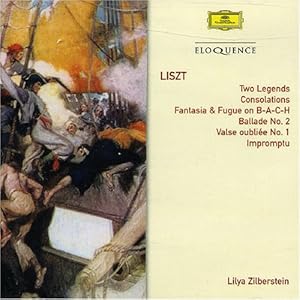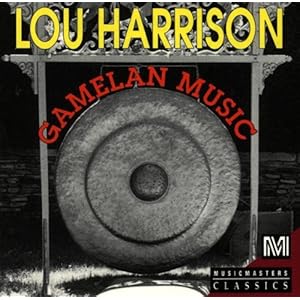First I should note that as of this month my music buying habits have changed radically. You'll have noticed that I'm able to provide excerpts from all the Award winners and runners-up for the 8tracks mixes. This is because last year I was basing my buying around the Awards contenders. Given that 70 albums made the final cut, and there were many more actual contenders, such a practice is possible only if you're very wealthy or if you still have an incredibly cheap eMusic subscription. So for the past year I've largely been getting albums that are "supposed to be good" rather than ones I myself might like. It sounds quite an obligation when put like that and towards the end I probably could have done without the self-imposed pressure to immediately fill the gaps, but in fact there's not a single album I'm not glad to have. Some more so than others, of course, and the thing is, the full set is almost literally a selection voted by committee, rather than one person's idiosyncratic choices. So, Awards out of the way, I said enough of that, time for a change. As of February, I'm back to a rigid, self-imposed program of freedom. And the first fruits of this new policy are...
 "The Black Dragon"
"The Black Dragon"Cançonièr
And I should point out straight away that I'm still paying close attention to reviews, but on the individual rather than collective level. I doubt very much if this particular release will end up in any putative 2011 Awards, or even be reviewed in more than one of my sources. It's the sort of release that really only Fanfare and ARG cover - self-published, unusual repertoire - and indeed it was in the latest issue of Fanfare that I found an interview with members of this California-based medieval ensemble (web site here). The album has an intriguing premise - music from the time of Vlad ("Dracula") the Impaler. It kicks off with part of the epic anti-Vlad propaganda poem "Von ainem wutrich der hies Trakle waida von der Walachei", and ends with another bit (the whole poem has over a thousand verses, apparently, most of them detailing his various impalings and other real or imagined barbarities), and there's some folk tunes from Hungary, Romania and the like thrown in, but overall it's a wide-ranging recital, covering a lot of ground from Turkey to France. That variety - reflected also in the selection of vocal versus instrumental pieces - stands it in good stead, as it avoids the sameyness that can sometimes affect even the best of these sorts of themed albums. I'm clueless about how medieval music should be performed, but Cançonièr seem to know what they're doing, and it's all thoroughly enjoyable. Dare I say, an album of medieval music for people who are afraid of albums of medieval music.
 Liszt: Two Legends; Consolations; etc.
Liszt: Two Legends; Consolations; etc.
Lilya Zilberstein
[Eloquence]
Of course I've previously mentioned this one's ye-scurvy-dogs cover, but what of the music? Honestly, and this is just me speaking, you understand, if I had a choice between just this one Liszt album and every single album ever recorded of Chopin and Schumann, there wouldn't be much hesitation. Your mileage, as they say, may vary. Yes, yes, I know there's a Chopin influence to be heard here anyway, but the simple fact is that Liszt (at least, in works such as the ones here) pushes my "piano" buttons in the same way Mahler pushes my "orchestra" buttons. Warm fuzzy feelings abound on this album. A bloody good start to my Liszt Year.
 Whitacre: "Light & Gold"
Whitacre: "Light & Gold"
The Eric Whitacre Singers; Laudibus/Eric Whitacre; and others
[Decca]
Not quite my first exposure to Whitacre's music but very nearly. He's so dishy! I might hate him if his music weren't so lovely. Not everything here is as good as everything else, but the best is very good indeed. There's more variety here than I feared - it's not all serene and beautiful crowd-pleasers like Lux Aurumque and Sleep. I could have done without a rather twee moment in Five Hebrew Love Songs that sounds like it's straight from the worst Franco Zeffirelli film imaginable, but overall the album makes a very favourable impression. Do you know the story of the piece Sleep? Whitacre was commissioned to set Robert Frost's "Stopping by woods on a snowy evening", which he duly did, to much acclaim. Then the Frost estate told him he wasn't allowed to use the poem until it entered the public domain in 2038. Not too keen on waiting that long, Whitacre got his sometime collaborator Charles Anthony Silvestri to write a new poem with the same structure and some of the same words. End result: a much-loved choral classic, and the Frost estate come across as a bunch of dicks.
 Harrison: Gamelan music
Harrison: Gamelan music
Gamelan Si Betty, with various soloists and the Berkeley Chamber Singers
[Music Masters]
Ever since I heard his gorgeous Air for the Poet, Lou Harrison's been one of those composers I keep meaning to hear more of but never get around to. Finally, I get this one, originally on Music Masters but now also part of a 4-disc reissue on Nimbus. The first piece, Philemon and Baukis for gamelan and solo violin, has that flowing lyricism that so attracted me to Air for the Poet. Not all the album is as comfortably beautiful as that, though: in Gending Alexander, the gamelan is perhaps at its most "exotic", reminding the listener that there are some sounds that Western ears must take time to get used to. The longest piece on the album is the multi-movement Homage to Pacifica, which uses a singer, chorus, and speaker to address how America has treated its environment and its original inhabitants. It includes, weirdly, a movement called "In Honor of the Divine Mr. Handel", which makes use of a harpist and sounds like a Handelian music-box. In "Litany", the choir and speaker chant the names of various Native American groups, the (marvellously stentorian) speaker concluding with the words "all the fine people on this original, natural land: Screwed".
 Liszt: Two Legends; Consolations; etc.
Liszt: Two Legends; Consolations; etc.Lilya Zilberstein
[Eloquence]
Of course I've previously mentioned this one's ye-scurvy-dogs cover, but what of the music? Honestly, and this is just me speaking, you understand, if I had a choice between just this one Liszt album and every single album ever recorded of Chopin and Schumann, there wouldn't be much hesitation. Your mileage, as they say, may vary. Yes, yes, I know there's a Chopin influence to be heard here anyway, but the simple fact is that Liszt (at least, in works such as the ones here) pushes my "piano" buttons in the same way Mahler pushes my "orchestra" buttons. Warm fuzzy feelings abound on this album. A bloody good start to my Liszt Year.
 Whitacre: "Light & Gold"
Whitacre: "Light & Gold"The Eric Whitacre Singers; Laudibus/Eric Whitacre; and others
[Decca]
Not quite my first exposure to Whitacre's music but very nearly. He's so dishy! I might hate him if his music weren't so lovely. Not everything here is as good as everything else, but the best is very good indeed. There's more variety here than I feared - it's not all serene and beautiful crowd-pleasers like Lux Aurumque and Sleep. I could have done without a rather twee moment in Five Hebrew Love Songs that sounds like it's straight from the worst Franco Zeffirelli film imaginable, but overall the album makes a very favourable impression. Do you know the story of the piece Sleep? Whitacre was commissioned to set Robert Frost's "Stopping by woods on a snowy evening", which he duly did, to much acclaim. Then the Frost estate told him he wasn't allowed to use the poem until it entered the public domain in 2038. Not too keen on waiting that long, Whitacre got his sometime collaborator Charles Anthony Silvestri to write a new poem with the same structure and some of the same words. End result: a much-loved choral classic, and the Frost estate come across as a bunch of dicks.
 Harrison: Gamelan music
Harrison: Gamelan musicGamelan Si Betty, with various soloists and the Berkeley Chamber Singers
[Music Masters]
Ever since I heard his gorgeous Air for the Poet, Lou Harrison's been one of those composers I keep meaning to hear more of but never get around to. Finally, I get this one, originally on Music Masters but now also part of a 4-disc reissue on Nimbus. The first piece, Philemon and Baukis for gamelan and solo violin, has that flowing lyricism that so attracted me to Air for the Poet. Not all the album is as comfortably beautiful as that, though: in Gending Alexander, the gamelan is perhaps at its most "exotic", reminding the listener that there are some sounds that Western ears must take time to get used to. The longest piece on the album is the multi-movement Homage to Pacifica, which uses a singer, chorus, and speaker to address how America has treated its environment and its original inhabitants. It includes, weirdly, a movement called "In Honor of the Divine Mr. Handel", which makes use of a harpist and sounds like a Handelian music-box. In "Litany", the choir and speaker chant the names of various Native American groups, the (marvellously stentorian) speaker concluding with the words "all the fine people on this original, natural land: Screwed".
2 comments:
If you like the Lou Harrison, try either or both of 'Lou Harrison: Chamber & Gamelan Works' (http://www.newworldrecords.org/album.cgi?rm=view&album_id=15542) and 'Lou Harrison: Piano Concerto/ Suite for Violin, Piano & Small Orchestra' (http://www.newworldrecords.org/album.cgi?rm=view&album_id=80366)
Thanks... you reminded me that I had actually heard one of those albums - the piano concerto one - many years ago, and liked that too.
Post a Comment